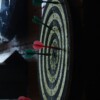
Confessing History: Explorations in Christian Faith and the Historian’s Vocation
Each generation has the obligation to interpret the past for itself with the best tools that it has available, even if choosing to accept most of the views which it has inherited. Similarly, each scholar has the obligation to seek to find what the optimum blending is of his or her most important personal values with the generally accepted principles of the guild. This book is a public forum of young-to-mid-career historians who are also serious Christians as they share their experiences in the quest to integrate faith, philosophy of history, and vocational practice.
The focal concept here is that of vocation. In recent decades, Mark Schwehn of Valparaiso University, together with the Religion Division of Lilly Endowment (led by Craig Dykstra and Chris Coble) through its program for the Theological Exploration of Vocation (PTEV), have stimulated thinking in church-related colleges on how a concentration on personal vocational mission could be a helpful means to consider or reconsider the role of religion in higher education. Indeed, the three editors of this book—John Fea (Messiah College), Jay Green (Covenant College) and Eric Miller (Geneva College)—all teach in institutions which participated in the Lilly PTEV program, and their grants helped to subsidize this book. The editors are active members of the Conference on Faith and History (CFH), one of the most significant of the many discipline-specific “faith and learning integration” professional organizations to emerge beginning in the 1960s, and several of the chapters in this book were originally presented at the CFH meetings at Hope College in 2004, for which the editors were the program organizers.
While this work primarily promotes reflective vocational thinking by Christian historians, it also offers a critique of what it sees as inadequacies in the CFH in particular and the history profession in general. On one level, it is a mild reaction against the first generation of the CFH, which it perceived as too dependent upon Reformed theology, too completely focused upon ideas as opposed to craft, and too accepting of the methodology of the secular guild. On a deeper level, it represents an effort to overcome a sense of inferiority which, rightly or wrongly, many twentieth-century Christian historians long have felt within the general history profession.
In a way, Confessing History follows in the tradition of such noteworthy scholars as Ernest Boyer, Parker Palmer and Douglas and Rhonda Jacobsen. Boyer (see Scholarship Reconsidered: Priorities of the Professoriate, 1990) emphasized how the scholarship of teaching is no less worthy than the scholarship of research and writing. Palmer (To Know as We Are Known: Education as Spiritual Journey, 1993) stressed how the Christian scholar best teaches and writes when he or she is growing in personal spiritual understanding. The Jacobsens (Scholarship and the Christian Faith: Enlarging the Conversation, 2004) call for Christian scholars to argue and defend less, and humbly and honestly dialogue more with a broad range of Christian and non-Christian scholars alike.
Editor Eric Miller writes the opening chapter (“A Tradition Renewed? The Challenge of a Generation”) in which he identifies the overall theme of the book, namely that the previous generation of Christian historians, while gaining more respect for avowed Christians in the profession and introducing the concept of faith and history integration in general, have not sufficiently worked at achieving integration in practice. The success of the earlier generation in realizing a meaningful degree of recognition in the craft and the growing self-doubt of the mainstream secular academy in general have allowed the rising current generation to be more confident and assertive. With one possible exception (the essay by Christopher Shannon), I view these present essays as nicely complementary to rather than in conflict with the work of the previous generation.
Wilfred M. McClay of the University of Tennessee at Chattanooga (“The Christian Historian and the Idea of Progress”) contributes the final and, philosophically, the most powerful essay in the book. He argues that the recent efforts of Christian historians to claim “a place at the table” for Christian scholarship is not inappropriate but actually is understated given how Christianity has been central in contributing to the development of such progressive elements as freedom, equality, human dignity, human rights, and democracy. Furthermore, the Christian understanding of the pervasiveness of sin is key in recognizing the limits of a progressive understanding of history. Then McClay offers an insightful narration of the key ideas of three of the most profound early-to-mid-twentieth-century interpreters of the relationship between Christianity and history, namely Herbert Butterfield, Christopher Dawson, and Reinhold Niebuhr.
The other essays are “Faith Seeking Historical Understanding” by Mark R. Schwehn of Valparaiso, “Not All Autobiography is Scholarship: Thinking as a Catholic, About History” by Una M. Cadegan of Dayton, “Seeing Things: Knowledge and Love in History” by Beth Barton Schweiger of Arkansas, “Virtue Ethics and Historical Inquiry: The Case of Prudence” by Thomas Albert Howard of Gordon, “The Objectivity Question and the Historian’s Vocation” by William Katerberg of Calvin, “Enlightenment History, Objectivity, and the Moral Imagination” by Michael Kugler of Northwestern Iowa, “On Assimilating the Moral Insights of the Secular Academy” by Bradley J. Gundlach of Trinity International, “Coming to Terms with Lincoln: Christian Faith and Moral Reflection in the History Classroom” by John Fea of Messiah, “The Problems of Preaching Through History” by James B. LaGrand of Messiah, “Don’t Forget the Church: Reflections on the Forgotten Dimension of our Dual Calling” by Robert Tracy McKenzie of Washington, “On the Vocation of Historians to the Priesthood of Believers” by Douglas A. Sweeny of Trinity Divinity School, “Public Reasoning by Historical Analogy: Some Christian Reflections” by Jay Green of Covenant, “For Teachers to Live, Professors Must Die: A Sermon on the Mount” by Lendol Calder of Augustana, and “After Monographs: A Critique of Christian Scholarship as Professional Practice” by Christopher Shannon of Christendom.
Perhaps I could best summarize this review by offering in concise form what I have found to be the most compelling descriptions and suggestions, directly or indirectly, in this helpful book of dialogue. These include the following:
1. The Christian historian seeks to be a Christian first and ultimately; being an historian is merely the way that she acts out her Christianity vocationally.
2. As God is love (I John 4:8), to think and act lovingly toward God’s creatures, living and dead, is to live in a godly manner.
3. All humans—including historians—are finite and tainted by sin. As historians study the past, they only see partly and partially; therefore they must seek to think, act and write with humility.
4. The Christian historian seeks to interact and dialogue with Christians and non-Christians alike in the shared quest to find truth about the past. This includes a forthright but gracious conversation on how explicitly Christian philosophies of history differ from non-Christian ones.
5. The Christian historian seeks to be open to exploring all areas of the human condition including the religious and spiritual domains, and to encourage the secular historians to do the same.
6. The Christian historian should seek not to be unduly dependent upon the general historical profession for the affirmation of his work. Her ultimate confidence comes from elsewhere.
7. The Christian historian believes that there is a divine hand in history and that human history is full of moral content, but in both cases she is very cautious when seeking to identify for others specific incidents of moral history.
8. The Christian historian is a prophet-at-large to the church and community; with discrimi-nation and graciousness on one hand but forthright boldness on the other hand, she seeks to correct major distortions in the popular understanding of the past.
9. The idea of central importance for both human history and the historian’s vocation is that God has entered history through Christ.
In every era, the established Christian historians—and indeed the Christian community in general—must listen to the fresh ideas of their rising colleagues. If at the present, the young professing historians are concerned that the veteran Christian historians are too closely connected to the values of the secular historical guild, those veteran Christian historians themselves in their own earlier years had offered a major critique of their own, namely that the Evangelical Christian community was too closely tied to secular political conservatism at home and an interventionist approach abroad. (See, for example, Robert G. Clouse, Robert D. Linder, and Richard V. Pierard, eds., Protest and Politics: Christianity and Contemporary Affairs [1968]). What, one may ask rhetorically, may be the agenda of the future young Christian historians a generation from now when we approach the mid-twenty-first century?























